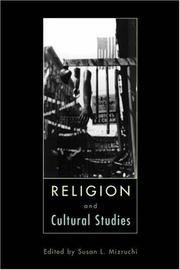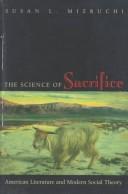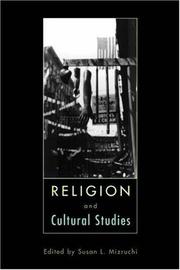| Listing 1 - 5 of 5 |
Sort by
|

ISBN: 0691005036 Year: 2001 Publisher: Princeton, N.J. Oxford Princeton University Press
Abstract | Keywords | Export | Availability | Bookmark
 Loading...
Loading...Choose an application
- Reference Manager
- EndNote
- RefWorks (Direct export to RefWorks)
291 --- Godsdienstwetenschap: vergelijkend --- Religion and culture --- United States --- Religion --- Religion. --- America --- religion --- cultural studies --- religious history --- media --- religion and culture --- asceticism --- spiritualism

ISBN: 0691015066 0691068925 1282753371 1400822475 9786612753374 1400812712 1400817196 1400805449 Year: 1998 Publisher: Princeton Princeton University Press
Abstract | Keywords | Export | Availability | Bookmark
 Loading...
Loading...Choose an application
- Reference Manager
- EndNote
- RefWorks (Direct export to RefWorks)
From ritual killings to subtle acts of self-denial, the practice and rhetoric of sacrifice has a special centrality in modern American literature. In a compelling interdisciplinary investigation, Susan Mizruchi portrays an episode in American cultural history when the literary movement of realism and the fledgling field of sociology both converged in the belief that sacrifice is basic to sociality. This is a book about the fascination that sacrifice held for writers--principally Herman Melville, Henry James, and W.E.B. Du Bois--and also for those who articulated the main tenets of modern social theory, an inquiry that eventually spans historical events such as public lynchings and the political scapegoating of immigrants a century ago. The execution in Billy Budd Sailor, the death of Du Bois's first-born son in The Souls of Black Folk, Henry James's preoccupation with renunciation and scapegoating, and the self-denying working classes of Norris and Stein all illustrate repeated stagings of sacrificial rituals from a Biblical past. For Mizruchi, the peculiar persistence of this aesthetic construct becomes a guide to a rich theological and social-scientific tradition distinctive to the late nineteenth and early twentieth centuries, and including such influential works as Smith's Lectures on the Religion of the Semites, Frazer's Golden Bough, and Ross's Sin and Society. The major features of sacrifice--its original association with spiritual doubt, its function as a form of spiritual economics that sustained divisions between the fortunate and the bereft, and its role in fixing boundaries between aliens and kin--held strong symbolic value for writers struggling to reconcile faith with rationalism, and communal coherence with capitalist expansion. Mizruchi eloquently demonstrates how the conceptual power of sacrifice made it a key mediator of cultural change, from the decline of sympathy and the significance of "race" in an emerging multicultural society to the revival of maternal self-sacrifice.
American literature --- Human sacrifice in literature. --- Literature and anthropology --- Literature and society --- Realism in literature. --- Rites and ceremonies in literature. --- Sacrifice in literature. --- Scapegoat in literature. --- Self-sacrifice in literature. --- Social problems in literature. --- History and criticism. --- Abnégation dans la littérature --- Human sacrifice in literature --- James, Henry, 1843-1916. The Awkward Age --- Littérature réaliste --- Mensenoffer in de literatuur --- Neorealism (Literature) --- Neorealisme (Literatuur) --- Néoréalisme (Littérature) --- Offer in de literatuur --- Problèmes sociaux dans la littérature --- Realism (Literary movement) --- Realism in literature --- Realisme (Letterkundige beweging) --- Realisme (Literaire beweging) --- Realisme in de literatuur --- Realistische literatuur --- Rites and ceremonies in literature --- Rites et cérémonies dans la littérature --- Ritussen en ceremoniën in de literatuur --- Réalisme (Mouvement littéraire) --- Réalisme dans la littérature --- Sacrifice dans la littérature --- Sacrifice humain dans la littérature --- Sacrifice in literature --- Scapegoat in literature --- Self-sacrifice in literature --- Social problems in literature --- Sociale problemen in de literatuur --- Zelfopoffering in de literatuur --- Sociology of literature --- Thematology --- Anthropology and literature --- United States --- Du Bois, William Edward Burghardt --- Anthropology --- Magic realism (Literature) --- Mimesis in literature
Book
ISBN: 1469605678 080788796X 9780807887967 9781469605678 9780807832509 0807832502 9780807859124 0807859125 Year: 2008 Publisher: Chapel Hill University of North Carolina Press
Abstract | Keywords | Export | Availability | Bookmark
 Loading...
Loading...Choose an application
- Reference Manager
- EndNote
- RefWorks (Direct export to RefWorks)
Between the Civil War and World War I the United States underwent the most rapid economic expansion in history. At the same time, the country experienced unparalleled rates of immigration. In The Rise of Multicultural America, Susan Mizruchi examines the convergence of these two extraordinary developments. No issue was more salient in postbellum American capitalist society, she argues, than the country's bewilderingly diverse population. This era marked the emergence of Americans' self-consciousness about what we today call multiculturalism.Mizruchi approaches this complex development from the
American literature --- Capitalism --- Cultural pluralism --- Cultural diversity --- Diversity, Cultural --- Diversity, Religious --- Ethnic diversity --- Pluralism (Social sciences) --- Pluralism, Cultural --- Religious diversity --- Culture --- Cultural fusion --- Ethnicity --- Multiculturalism --- Market economy --- Economics --- Profit --- Capital --- History and criticism. --- Social aspects --- History. --- Economic aspects --- History --- United States --- Intellectual life --- Race relations --- Emigration and immigration --- Economic conditions --- 19th century --- 20th century --- America --- 1865-1918 --- History and criticism
Book
ISBN: 0190944412 0190944390 9780190944391 9780190944384 0190944382 0190944404 Year: 2021 Publisher: New York Oxford University Press
Abstract | Keywords | Export | Availability | Bookmark
 Loading...
Loading...Choose an application
- Reference Manager
- EndNote
- RefWorks (Direct export to RefWorks)
An elegant introduction to one of America's most complex and influential writers.From his childhood in a family of leading American intellectuals through his mature life as a major American man of letters, Henry James (1843-1916) created a unique body of fiction that represents one of the greatest achievements in the nation's literary history. James's transnational life in the US and England and his extraordinary siblings (the philosopher William James and diarist Alice James) made his life as complicated as the fictions he produced. In this elegant introduction to the work of Henry James, Susan L. Mizruchi places the notoriously difficult and obscure writings in their historical and biographical context.As James grew in confidence as a writer, his fictions evolved accordingly. These complex accounts of human experience engage with the vital issues of both James's era and our own. Among the works treated in this introduction are Washington Square, The Europeans, Daisy Miller, The Portrait of a Lady, The Golden Bowl, and The Turn of the Screw. Through his novels, as well as his journalistic and critical endeavors, James explores themes related to gender relations, human sexuality, the nature of modernity, the threat of relativism, the rise of mass culture, and the role of art.Since their creation, James's writings have been a consistent subject of both literary theory and popular culture, receiving a diverse array of theoretical treatments, from formalism, deconstruction, phenomenology, and pragmatism to Marxism, new historicism, and gender and queer theory. James's novels have been adapted into numerous films by directors including William Wyler, Peter Bogdanovich, Michael Winner, Merchant/Ivory, and Jane Campion. The impact of Henry James cannot be overstated.
James, Henry, --- Criticism and interpretation. --- James, Henry --- Dzheĭms, G. --- Dzheĭms, Genri, --- Jeimsŭ, Henri, --- Джеймс, Генри, --- ג׳יימס, הנרי, --- ג׳ײמס, הנרי, --- Τζειος, Χενρι, --- جميس، هينري، --- جيمز، هنرى --- James, Henry, - 1843-1916

ISBN: 0691005028 0691005036 0691224048 Year: 2001 Publisher: Princeton, N.J. Princeton University Press
Abstract | Keywords | Export | Availability | Bookmark
 Loading...
Loading...Choose an application
- Reference Manager
- EndNote
- RefWorks (Direct export to RefWorks)
Religious studies --- Sociology of culture --- United States of America
| Listing 1 - 5 of 5 |
Sort by
|

 Search
Search Feedback
Feedback About UniCat
About UniCat  Help
Help News
News